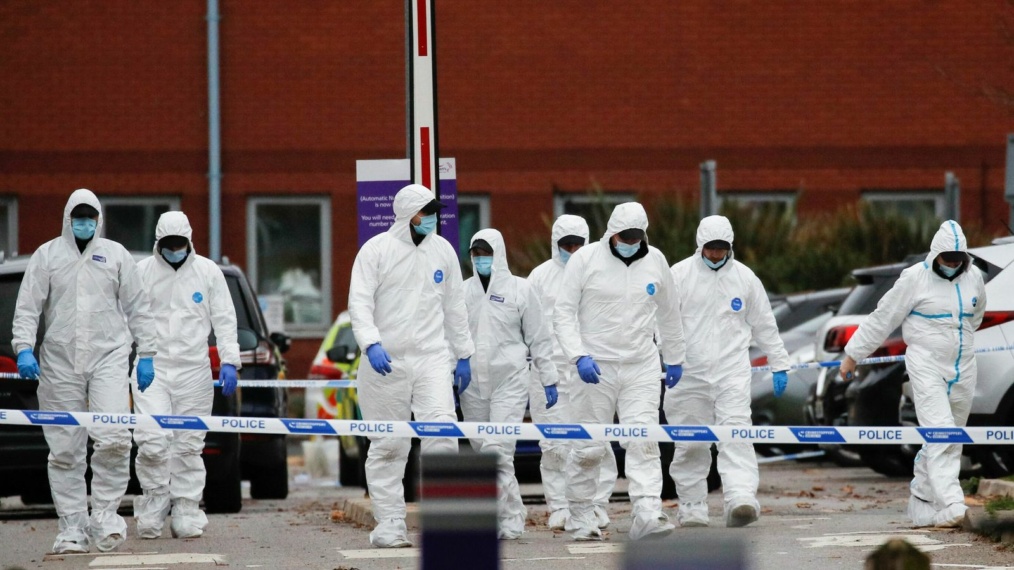
The Liverpool Attack: A Need for Community-Based Counter-Terrorism Efforts
The Liverpool bombing on Remembrance Sunday has once again raised questions about the U.K. Counter-Terrorism Prevention Program. The alacrity with which these attacks have occurred in recent times has once again highlighted the rise of extremism in the Western world.
Just before the national two minutes of silence commenced on Sunday, November 14th, a taxi exploded outside the Liverpool Women’s Hospital. The taxi driver, who locked the taxi doors before the attacker could escape and prevented him from entering the hospital, has been released from the hospital. The attacker, Emad al-Swealmeen, has been declared dead.
Four men have been arrested under the Terrorist Act but have since been released from custody. Counter-Terrorism Police detectives have stated that they are keeping an open mind so far.
Home Secretary Priti Patel has confirmed that the United Kingdom’s threat level has been raised to “severe;” indicating that an attack is now judged to be “highly likely.” The Liverpool bombing closely follows another incident that rocked the country last month when conservative MP David Amess was stabbed to death in a shocking event described as a terrorist incident.
A miasma of uncertainty and fear surrounds the United Kingdom. Four people have been arrested on suspicion of being connected to the Liverpool bombing, while Ali Harbi Ali has been charged with the murder of Amess. Ali has also been accused of preparing terrorist acts.
The Rise of Islamist Extremist Groups in the West
In the last 20 years, various Islamist extremist groups have sought to spread their message through various ways, with radicalisation being the prime intention. The West has been accused of slowly malforming the culture and the religion, and this has further radicalised lone-wolves. In addition, the extent of social media and various online platforms carries with it certain banes, and terrorist groups have found it easier to convey their message through such platforms.
The Liverpool attack has once again sharply brought the focus onto the United Kingdom’s Counter-Terrorism Prevention Program. Despite various new initiatives and strategies to counteract terrorism (including the Prevent scheme as part of the Contest strategy), the U.K. continues to act as a hotbed for consistent terrorist activities.
In 2005, four coordinated attacks were carried out by Islamic terrorists in London, which killed 52 people. This was the country’s first Islamist suicide attack, the impact of which continues to reverberate to this day. In 2017, an Islamic extremist detonated a bomb that killed 23 people following an Ariana Grande concert.
The Militarisation of Counter-Terrorism and the Neglect of Community-Based Approaches
However, the Liverpool bombing has once again revived the discussion around the impact of U.K. counter-terrorism programs.
The U.K. response to the rise in extremist attacks has been met with efforts to train and equip a Counter Terrorist Police Force in the hopes to meet terrorist attacks with immediacy. However, the elite group of firearms officers portrays a militarised approach to counter-terrorism. While this may be effective in deterring attacks when they happen, they do little to address the push and pull factors of radicalisation.
In May of this year, Al Jazeera released a report assessing a mental health program run by the U.K. Counter-Terrorism Police. Disturbing facts have been revealed in that report. The “Vulnerability Support Hubs,” as they have been termed, were utilised as a way of tracking and accessing sensitive medical information on certain people. As a result, Muslims with poor mental health have come under heavy scrutiny.
An additional argument regarding the U.K.’s approach to counter-terrorism is that it could do more to be proactive, rather than reactive. The West Midlands Counter-Terrorism Unit documents that 80% of their investigations connected to seized weaponry stem from Islamist extremists. Far-right extremists comprised a fifth of their investigations. However, in the last two years, far-right extremism has been rapidly increasing. Should this trend continue, the U.K. must act promptly to implement effective counter-terrorism policies across various religions, socio-economic groups, and ethnicities.
Origins of extremist behavior need to be analyzed and combatted before meeting the point of seizing weaponry. The U.K. must raise active involvement by civil society, religious communities, their respective leaders, teachers, and doctors to preemptively recognizing and addressing extremist behaviors.
The U.K. must steer clear from inflammatory rhetoric, evidenced in areas of Europe, in an effort to avoid alienating certain minorities, thus risking the loss of their cooperation.
The Need to Build Trust and Confidence
The U.K. must put more thought into building trust and confidence between its wide range of communities and counter-terrorism units. There is no denying that every program will have its setbacks and challenges. The aim should be to educate the masses and build trust. There should be an emphasis on a more open counter-terrorism program that offers civil-society a chance to approach counter-terrorism units with independent research and recommendations to compliment the law enforcing element, as opposed to militarizing it entirely.
Abhinav Anand, Counter-Terrorism Research Fellow at Rise to Peace
Carla Bilson, Counter-Terrorism Research Fellow at Rise to Peace
Ahmad Shah Mohibi, Founder of Rise to Peace

